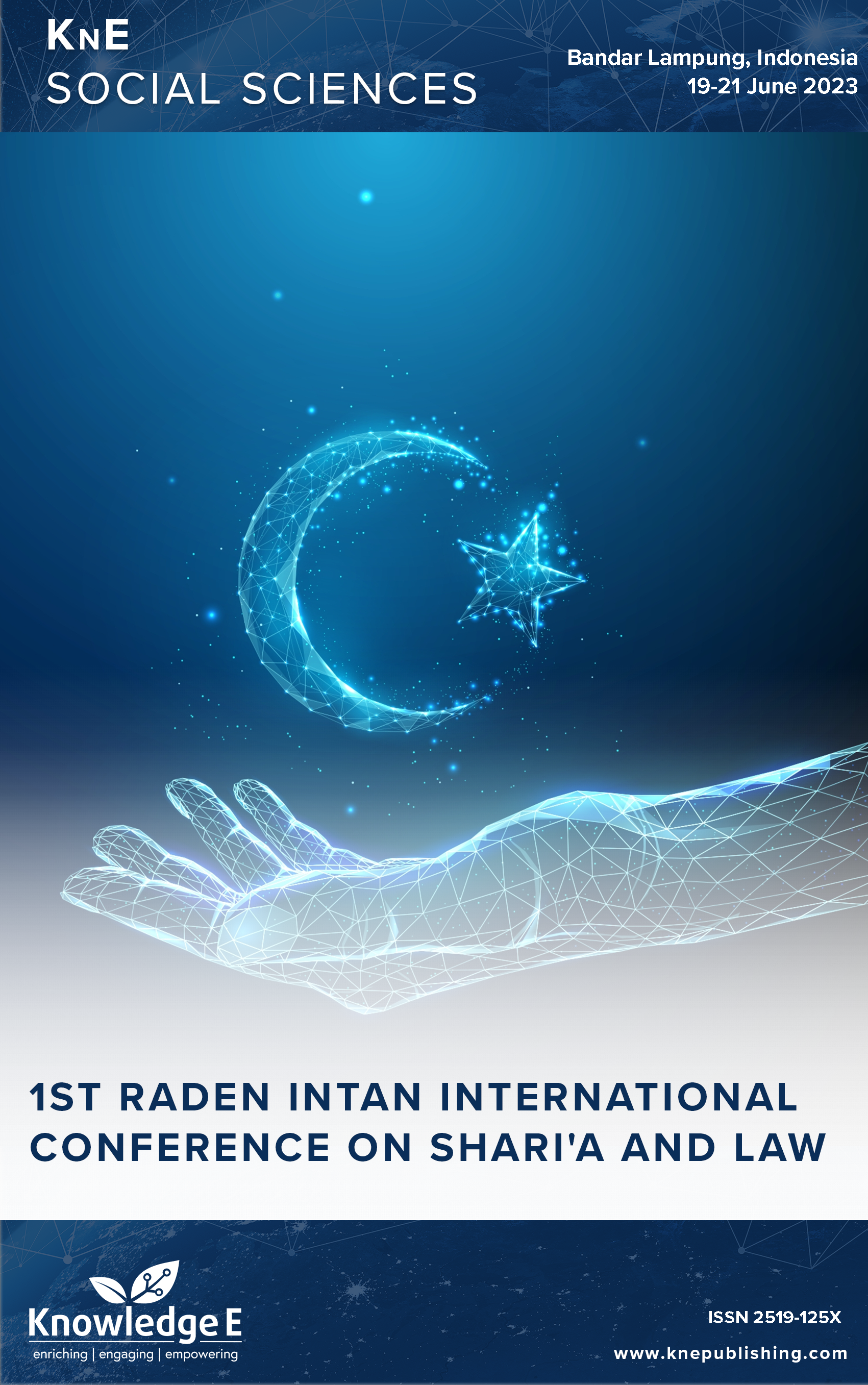Integration of Religious and Social Values in the Development of the Indonesian Constitution Era 5.0
DOI:
https://doi.org/10.18502/kss.v9i2.14962Abstract
This study examines the inclusion of Islamic religious and social values in the development of the constitution in Indonesia because it is undeniable that the role of religion brought by the Prophet Muhammad is an inspiration for making laws in the country. The social values of the community or what is referred to as customary law are also integrated into positive law or the Indonesian constitution. This research uses a socio-legal approach. This study concludes that religious and social values of society enter National Law through adjustment to legal values and through system transplantation. The existence of Islamic Law in the Development of National Law identified that the paradigm of Pancasila in which the Islamic legal system is contained and the positivization of Islamic law into national law through several codifications and legal unification has been in the form of laws and regulations. Religious values and community customs are integrated into the constitution of Indonesia, which has the potential to continue to develop along with the times and technology.
Keywords: integration, religion, social, constitution
References
Joseph Schacht. An Introduction to Islamic Law. London: The Clarendon Press; 1971.
Mu’allim A, Yusdani. Konfigurasi Pemikiran Hukum Islam. 2nd ed. Yogyakarta: UII Press; 2001.
Asshiddiqie J. Hukum Islam di Antara Agenda Hukum Nasional. Mimb Huk 2001;51.
Sembodo C. Reintroduksi Hukum Islam dalam Wacana Kebangsaan. Mimb Huk 2001;53.
Wahid A. Menjadikan Hukum Islam sebagai Penunjang Pembangunan. In: Arief ER, Surjaman T, editors. Huk. Islam di Indones. Pemikir. dan Prakt., Bandung: Rosdakarya; 1991.
Ali MD. Pengembangan Hukum Islam dan Yurisprudensi Peradilan Agama. Mimb Huk 1994;12.
Arief BN. Penggalian Hukum dalam Rangka Tujuan Pembangunan Nasional 1990.
Saleh I. Wawasan Pembangunan Hukum Nasional. 1991.
Ali MD. Permasalahan dalam Penelitian Hukum (Suatu Penjelajahan Permulaan). 1985.
Manan B. Peranan Peradilan Agama dalam Pembinaan Hukum Nasional. In: Arief ER, Surjaman T, editors. Huk. Islam di Indones. Pemikir. dan Prakt. 1st ed., Rosdakarya; 1991.
Kuntowijoyo. Muslim Tanpa Masjid, Esai-Esai Agama, Budaya, dan Politik dalam Bingkai Strukturalisme transendental. Mizan; 2001.
Riyadi H. Respon Muhammadiyah dalam Dialektika Agama. Pikiran Rakyat 2003.
Mudzar MA. Pengaruh Faktor Sosial Budaya terhadap Produk Pemikiran Hukum Islam. Mimb Huk 1991;4.
Adams CJ, Ali MD. Hukum Islam, Pengantar Ilmu Hukum dan Tata Hukum Islam di Indonesia. Jakarta: 1999.
Abstraksi Hukum Islam. Mimb Huk 1992;5.
Z AF. Proses Undang-undang Perkawinan. Bandung: Al-Ma’arif; 1976.
Coulson NJ. A History of Islamic Law. Edinburgh: Edinburgh University Press; n.d.
Cotterrell R. The Sociologi of Law an Introduction. London: Butterworths; 1984.
Khallaf AW. Ushul Fiqh. Beirut: Daar al-Fikr; n.d.
Cotterrell R. The Sociological an Introduction. London: Butterworths; 1984.
Siregar B. Hukum Islam Sebagai Institusi Keagamaan (Hukum Islam Di Indonesia, Pemikiran dan Praktik). Bandung: Rosdakarya; 1991.

